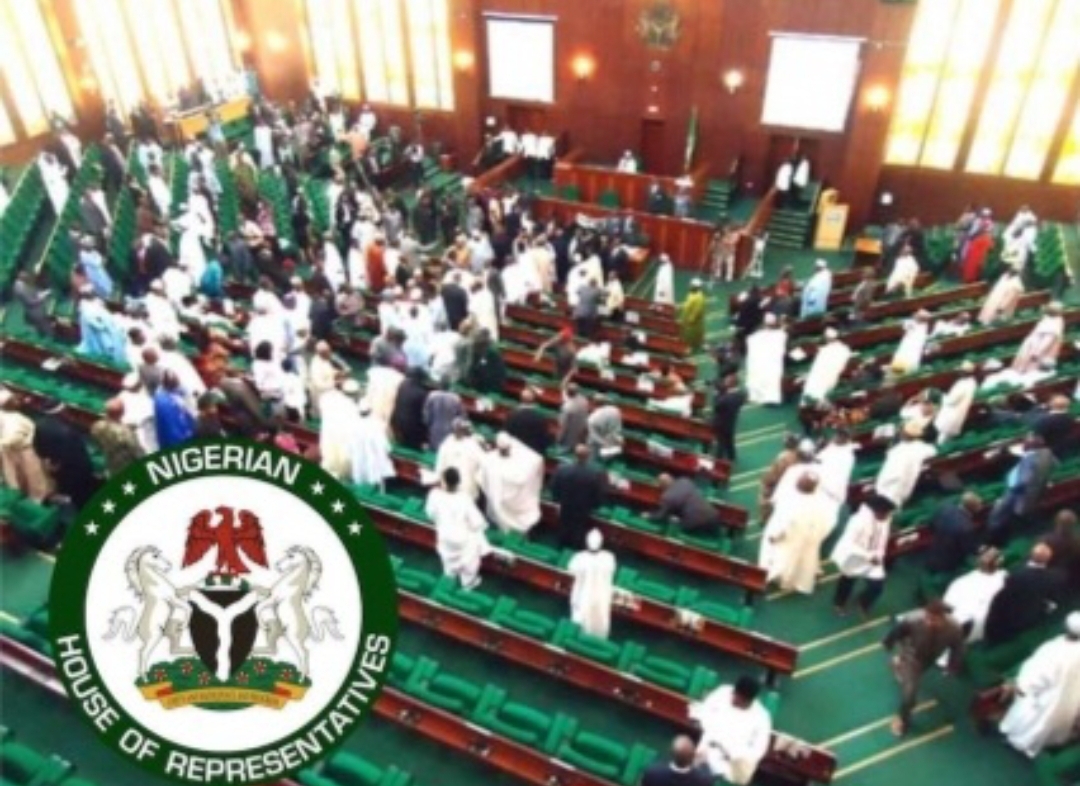
Olayomi Koiki and agency report
Abuja – Members of the house of representatives have resolved to slash their salaries by 50 percent due to the pervasive economic hardship across the country.
The lower legislative chamber passed the resolution during plenary on Thursday, following the adoption of a motion of urgent public importance.
The motion was titled: ‘An Appeal to the Proponents of Proposed Nationwide Protest to Maintain Peace, Eschew Violence and Open the Windows for Meaningful Engagements with Government at all Levels in Order to Address their Issues’.
It was sponsored by Ibrahim Isiaka from Ogun state.
Ben Kalu, deputy speaker, proposed the amendment, stating that it is a worthy sacrifice the legislators should make for the next six months.
He said the lawmakers earn N500,000 monthly.
He was corrected by Tajudeen Abbas, speaker of the house, who said they receive N600,000 in monthly salaries.
While moving the motion, Isiaka said youths are planning a nationwide protest over the economic hardship in the country.
The lawmaker said while protest is a constitutional right, the youths should be patient with the government.
He said maintaining peace and engaging in constructive dialogue with the government is crucial for the resolution of issues.
“Be it resolved that this honourable house appeals to the proponents of the proposed nationwide protest in Nigeria to consider a different path, a path of patience, dialogue, and collaboration, prioritise peace and open channels for meaningful engagements with the government at all levels,” he said.
“Be it further resolved that all stakeholders should uphold the principles of democracy, respect human rights, and uphold the rule of law in their actions and engagements.
“We trust that through peaceful engagement and dialogue, we can collectively work towards building a better and brighter future for Nigeria.
“It is undeniable that Nigeria is facing significant challenges, challenges that have plagued our nation for far too long. The issues of insecurity, unemployment, and poverty weigh heavily on the heart of every Nigerian. The desire for change, for progress, for a better tomorrow is a sentiment that unites us all.
“The challenges we face are not unique to Nigeria alone. These are issues that countries across the globe grapple with on a daily basis. In a world that is constantly changing and evolving, no nation is immune from the complexities of governance and development.
“The road to change is not easy and the journey towards a brighter future is often fraught with obstacles.
“But we must not lose sight of the incremental steps that have been taken, the reforms that have been implemented, and the strides that have been made towards a more prosperous Nigeria.
“That change does not happen overnight. It requires patience, perseverance, and a commitment to working together towards a common goal.
“While peaceful protest is a fundamental right in a democratic society, it is also important to allow the government the space and opportunity to consolidate the progress that has already been achieved.
“Let us engage in constructive dialogue, let us seek solutions through peaceful means, and let us stand united as one nation, one people, with a shared vision for a better Nigeria.
“Together, we can overcome the challenges that lie before us. Together, we can build a future that we can all be proud of.”
In his contribution, Kalu said the nation’s problems did not start overnight and one year is not enough time for the current administration to fix the challenges.
Kalu said carrying placards and protesting against economic hardship will not solve the problem.
“The solution is not found in carrying placards,” he said.
Also speaking, Ahmed Jaha from Borno said it will take a “reasonable period” of time to address the problems in the country.
“Tough times don’t last forever, but tough people do,” he said.
“We are appealing to our young men to give the government the benefit of the doubt.”
Jaha said despite the economic hardship, the price of commodities is cheaper in Nigeria than in most African countries.
“If you compare the cost of living in West Africa, you would appreciate the cost of living in Nigeria,” he said.
When Abbas put the motion to a voice vote, the “nays” were louder than the “ayes” but the speaker said “the ayes have it”.
Abbas referred the motion to the committees on appropriation, finance, national planning, and humanitarian affairs for further legislative action.
Nigeria is facing its worst economic crisis in decades, with skyrocketing inflation, a national currency in free-fall and millions of people struggling to buy food. Only two years ago Africa’s biggest economy, Nigeria is projected to drop to fourth place this year.
The pain is widespread. Unions strike to protest salaries of around $20 a month. People die in stampedes, desperate for free sacks of rice. Hospitals are overrun with women wracked by spasms from calcium deficiencies.
The crisis is largely believed to be rooted in two major changes implemented by a president elected 14 months ago: the partial removal of fuel subsidies and the floating of the currency, which together have caused major price rises.
A nation of entrepreneurs, Nigeria’s more than 200 million citizens are skilled at managing in tough circumstances, without the services states usually provide. They generate their own electricity and source their own water. They take up arms and defend their communities when the armed forces cannot. They negotiate with armed kidnappers when family members are abducted.
But right now, their resourcefulness is being stretched to the limit.
Some folks are planning protests to voice their concerns about the economic situation, including rising inflation and poverty, under President Tinubu’s administration.
The protests are expected to happen in the north and other parts of the country, but residents and leaders of the south-eastern region, inhabited by the Igbo ethnic group – have made it clear that they are not going to be part of the mass action.
KOIKI Media bringing the world 
